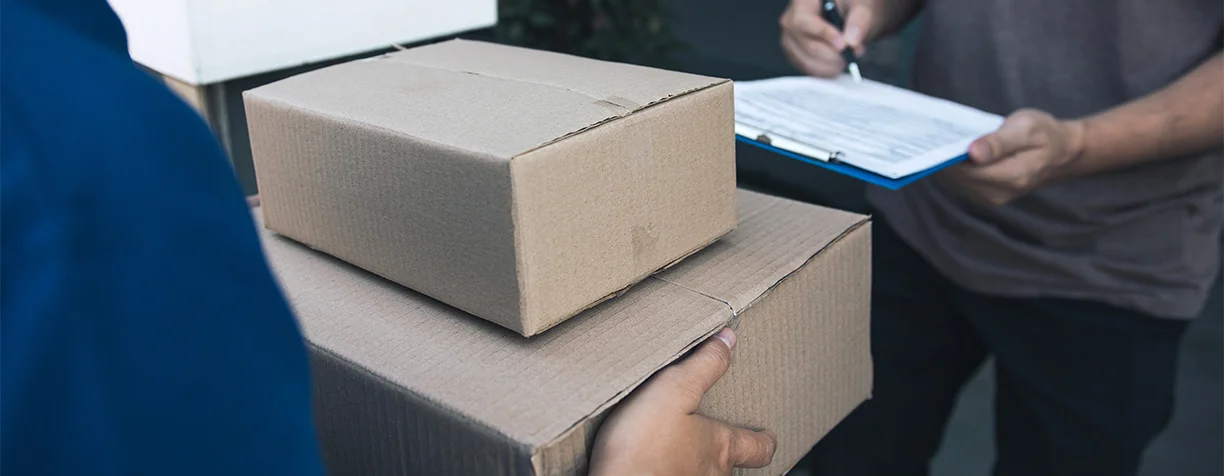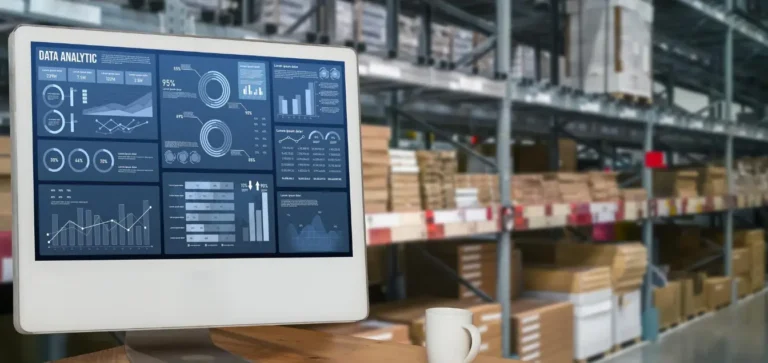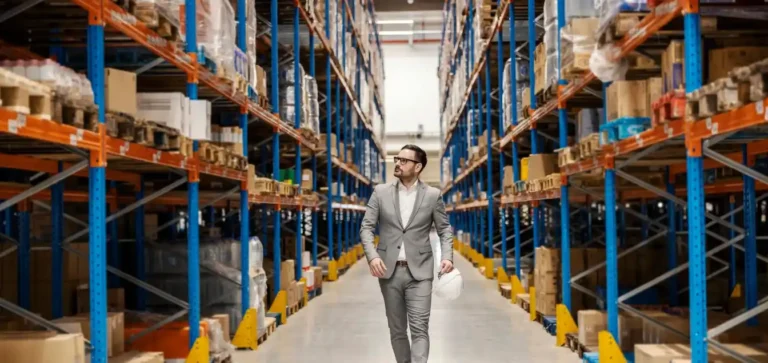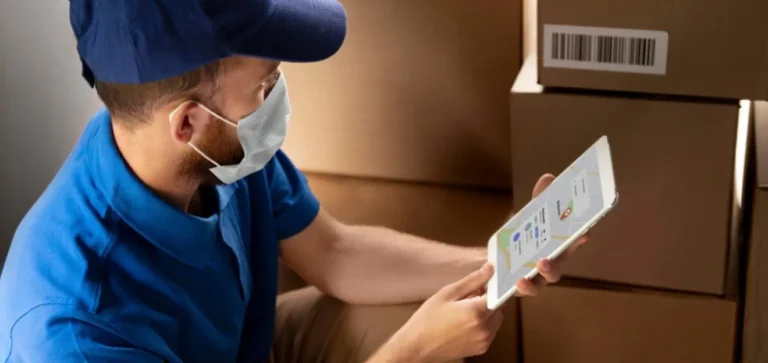In the evolving landscape of logistics and supply chain management, one term has garnered significant attention: What is Last Mile Delivery. This crucial phase in the delivery process ensures that goods reach their final destination – the customer. The importance of last mile delivery cannot be overstated, as it directly impacts customer satisfaction and operational efficiency.
But what is last mile delivery, and why is it so pivotal in modern logistics? This article delves into the intricacies of last mile delivery, exploring its significance, challenges, and the innovative strategies that businesses can employ to optimize this critical component of their logistics operations.
Table of Contents
What is Last Mile Delivery?
As part of the delivery process, last mile delivery refers to moving goods from a hub to the end customer. This stage is often regarded as the most critical and challenging part of the logistics journey. It involves navigating urban areas, dealing with traffic, and ensuring timely deliveries. Essentially, the last mile is the point where the service provider interacts directly with the customer, making it a key factor in the overall customer experience.
In logistics terminology, the “last mile” doesn’t necessarily imply a literal mile; rather, it symbolizes the final leg of the journey from the transportation hub to the customer’s doorstep. This phase can vary significantly in distance, complexity, and duration depending on the geographic location and the specific logistics network in place. The last mile can occur in densely populated urban areas, sprawling suburban neighborhoods, or even remote rural regions.
The Importance of Last Mile Delivery
The significance of last mile delivery lies in its direct impact on customer satisfaction. In today’s fast-paced world, consumers expect rapid and reliable deliveries. Efficient last mile delivery can enhance a company’s reputation and lead to repeat business. Conversely, delays or issues in this stage can result in negative reviews and lost customers. Therefore, businesses must prioritize optimizing their last mile delivery processes.
As e-commerce grows, last mile delivery is becoming more critical. Online shoppers expect their purchases to arrive quickly and accurately. Retail giants like Amazon have set high standards for delivery speed, often offering same-day or next-day delivery options. As a result, smaller businesses must also strive to meet these expectations to remain competitive.
Furthermore, last mile delivery is not just about speed. It also involves ensuring the accuracy and safety of deliveries. Customers expect their packages to arrive in perfect condition, without any damages or discrepancies. This requires careful handling, secure packaging, and reliable tracking systems.
How Last-Mile Delivery Works
Understanding how last-mile delivery works is essential for businesses aiming to improve their logistics operations. The process typically starts when a product reaches a local distribution center. From there, it is sorted and assigned to a delivery vehicle. Advanced technologies, such as route optimization software, are used to plan the most efficient delivery routes. The goal is to ensure timely and accurate deliveries while minimizing operational costs.
Here are the key steps to follow:
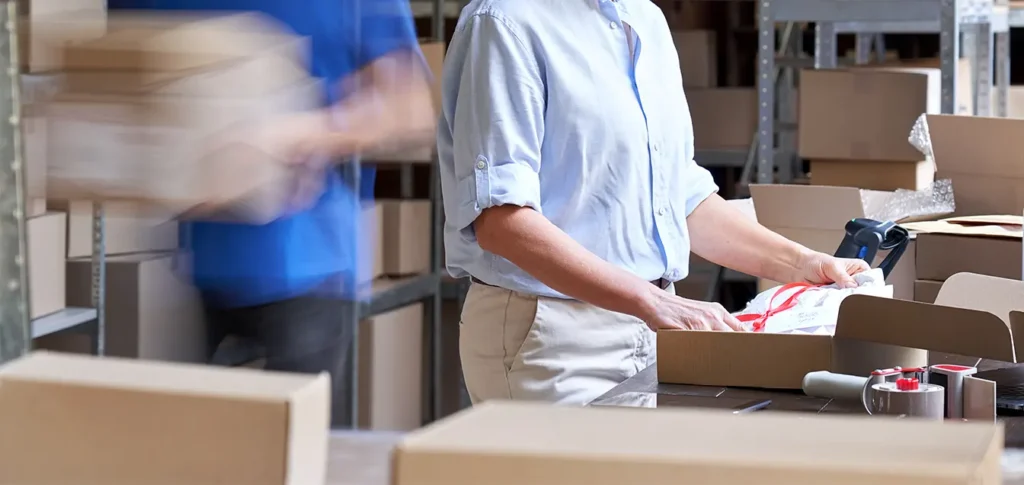
1. Order Processing:
Once an order is placed, it is processed and prepared for shipment at a central warehouse or distribution center. This involves picking, packing, and labeling the items.
2. Transportation to Local Hub:
The packaged goods are then transported to a local distribution hub. This step may involve long-distance transportation via trucks, trains, or airplanes.
3. Sorting and Allocation:
At the local hub, the packages are sorted based on their delivery addresses and assigned to specific delivery vehicles or couriers.
4. Route Planning:
Delivery routes are planned using advanced software that takes into account factors such as traffic conditions, delivery windows, and package priorities. This helps in optimizing the delivery sequence and minimizing travel time.
5. Last Mile Delivery:
The packages are loaded onto delivery vehicles and dispatched to their final destinations. Couriers navigate through urban or suburban areas to deliver the packages directly to customers.
6. Proof of Delivery:
Once the package is delivered, proof of delivery is obtained, which may include the recipient’s signature, a photo of the delivered package, or a GPS timestamp. This helps in tracking and verifying successful deliveries.
Challenges in Last Mile Delivery
The last mile delivery process is fraught with challenges. Urban congestion, narrow streets, and varying customer availability times can complicate delivery schedules. Additionally, the rise of e-commerce has led to an increase in delivery volumes, further straining logistics networks. Companies must navigate these obstacles while maintaining high standards of service.
Urban Congestion
In densely populated urban areas, traffic congestion can significantly delay deliveries. Navigating through crowded streets, finding parking spots, and dealing with roadblocks or construction zones can be time-consuming and frustrating for delivery drivers.
Varying Customer Availability
Customers may not always be available to receive their packages, leading to missed deliveries and additional attempts. Coordinating delivery times with customers’ schedules can be challenging, especially for working individuals who may not be home during standard delivery hours.
Increased Delivery Volumes
The surge in online shopping has resulted in a substantial increase in delivery volumes. During peak shopping seasons, such as holidays and sales events, logistics networks can become overwhelmed, leading to delays and operational inefficiencies.
Last-Mile Costs
The cost of last mile delivery is often disproportionately high compared to other stages of the supply chain. Factors such as labor, fuel, and vehicle maintenance contribute to these costs. Additionally, the need for frequent stops and the relatively low density of deliveries in certain areas can further drive up expenses.
Technological Integration
Integrating advanced technologies into existing logistics systems can be complex and costly. Ensuring efficient communication between different software platforms, vehicles, and tracking devices requires significant investment and expertise.
Optimize Last-Mile Delivery Efficiency
To optimize last-mile delivery efficiency, businesses can implement several strategies. Leveraging technology, such as GPS tracking and real-time updates, helps in better route planning and management. Additionally, using data analytics to predict peak delivery times and customer preferences can enhance efficiency. Employing flexible delivery options, like evening and weekend deliveries, also cater to diverse customer needs.
Technology Integration
Advanced technologies play a crucial role in optimizing last mile delivery. GPS tracking systems provide real-time visibility into delivery vehicles’ locations, allowing businesses to monitor progress and make adjustments as needed. Route optimization software helps in planning the most efficient delivery routes, taking into account factors like traffic conditions, delivery windows, and package priorities.
Data Analytics
Data analytics can provide valuable insights into customer behavior and delivery patterns. By analyzing historical data, businesses can identify peak delivery times, popular delivery locations, and customer preferences. This information can be used to improve route planning, allocate resources more effectively, and anticipate demand fluctuations.
Flexible Delivery Options
Offering flexible delivery options can enhance customer satisfaction and reduce missed deliveries. Evening and weekend deliveries cater to customers who may not be available during regular business hours. Additionally, providing options for scheduled deliveries allows customers to choose a convenient time for receiving their packages.
Collaboration with Local Partners
Collaborating with local delivery partners can help in extending delivery coverage and reducing costs. Local partners have a better understanding of the area’s logistics landscape and can navigate efficiently through neighbourhoods. This collaboration can be particularly beneficial in remote or hard-to-reach areas.
Cost-Effective Last Mile Strategies
Implementing cost-effective last mile strategies is crucial for maintaining profitability. Companies can reduce costs by optimizing delivery routes, consolidating shipments, and utilizing local delivery partners. Investing in electric vehicles or bicycles for short-distance deliveries can also lower expenses and promote sustainability. These strategies help in balancing cost management with service quality.
The Latest Last-Mile Delivery Innovations
The logistics industry is continuously evolving, with the latest last-mile delivery innovations driving significant improvements. Autonomous delivery vehicles, drones, and robots are being tested to optimize deliveries. These technologies promise faster, more reliable services while reducing human labor costs. Additionally, smart lockers and parcel kiosks offer convenient pick-up options for customers, enhancing flexibility.
Customer-Centric Final Mile Services
Providing customer-centric final mile services is key to gaining a competitive edge. Offering real-time tracking, flexible delivery windows, and easy returns are some ways to enhance customer experience. Personalizing delivery services based on customer preferences and feedback further strengthens customer relationships. A focus on customer satisfaction leads to loyalty and repeat business.
Real-Time Tracking

Real-time tracking allows customers to monitor the progress of their deliveries, providing transparency and reducing uncertainty. Customers can receive updates on the estimated delivery time, the current location of their package, and any potential delays. As a result, customers are more confident and satisfied.
Flexible Delivery Windows
Offering flexible delivery windows accommodates customers’ varying schedules and reduces the likelihood of missed deliveries. Customers can choose a delivery time that suits them best, whether it’s during the day, in the evening, or on weekends. This flexibility improves the overall delivery experience and increases the likelihood of successful first-attempt deliveries.
Easy Returns
A hassle-free return process is an important aspect of customer-centric final mile services. Providing easy and convenient return options, such as pick-up services or drop-off locations, enhances customer satisfaction. Clear instructions and responsive customer support also contribute to a positive return experience.
Personalized Delivery Services
Personalizing delivery services based on customer preferences and feedback helps in building strong customer relationships. Businesses can offer customized delivery options, such as specific delivery instructions, preferred delivery times, and special handling requests. Personalized services demonstrate a commitment to meeting individual customer needs and preferences.
What is White Glove Delivery Service?
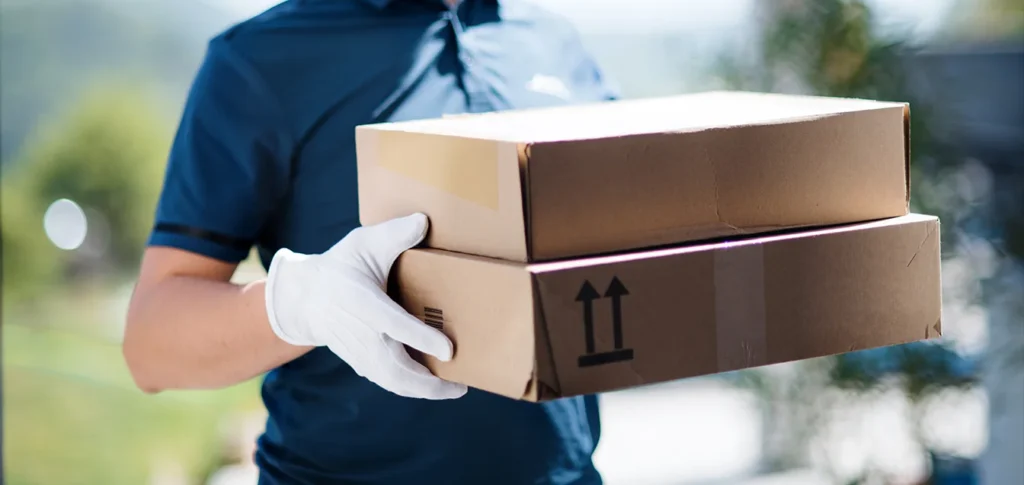
What is White Glove Delivery Service? This premium delivery option involves special care and handling of products, often including installation and setup services. It is typically used for high-value or fragile items, ensuring they arrive in perfect condition. White glove delivery caters to customers who seek an added level of service and attention to detail.
Top Last Mile Carriers in Canada in 2024
Identifying the top last mile carriers in Canada in 2024 is essential for businesses operating in this region. Leading carriers like Canada Post, Purolator, and FedEx are renowned for their reliable and efficient last mile services. Partnering with established carriers ensures a robust logistics network and consistent delivery performance.
3PL Logistics Canada
3PL Logistics Canada refers to third-party logistics providers that offer end to end logistics solutions, including last mile delivery. These providers handle various aspects of the supply chain, allowing businesses to focus on their core operations. Utilizing 3PL services can enhance efficiency, reduce costs, and improve delivery speed.
Strategies for Success in Final Mile Delivery
Implementing strategies for success in final mile delivery involves a combination of technology, customer focus, and operational efficiency. Businesses should invest in advanced delivery management systems, prioritize customer feedback, and continuously analyze performance data. Adapting to changing market trends and customer expectations is also crucial for sustained success.
What is the Last Mile in Logistics?
What is the last mile in logistics? This is the final step of the delivery process, where the goods are transported from the distribution hub to the end user. This step is critical in ensuring customer satisfaction and operational efficiency. The last mile often presents unique challenges, such as urban congestion and varying delivery preferences, making it a focal point for logistics innovation.
Everything You Need to Know about Final Mile
It encompasses the last leg of the delivery journey, emphasizing timely and accurate deliveries. Businesses must navigate challenges like traffic and customer availability while employing strategies to enhance efficiency and reduce costs. Innovations in technology and a customer-centric approach are pivotal for success in this area.
What is Final Mile Delivery?
What is Final Mile Delivery? This term refers to the concluding step in the logistics chain, where products are delivered directly to the customer. It is synonymous with last mile delivery and is crucial for ensuring customer satisfaction. Efficient final mile delivery requires careful planning, advanced technology, and a focus on meeting customer expectations.
Conclusion
In summary, understanding what is last mile delivery is essential for businesses aiming to excel in the competitive logistics landscape. This critical phase involves delivering goods from a local hub to the customer, impacting overall customer satisfaction and operational efficiency. By leveraging technology, optimizing routes, and focusing on customer-centric services, businesses can overcome the challenges of last mile delivery and achieve sustained success. Innovations and strategies tailored to enhance last mile efficiency will continue to shape the future of logistics, ensuring timely and reliable deliveries for all.

